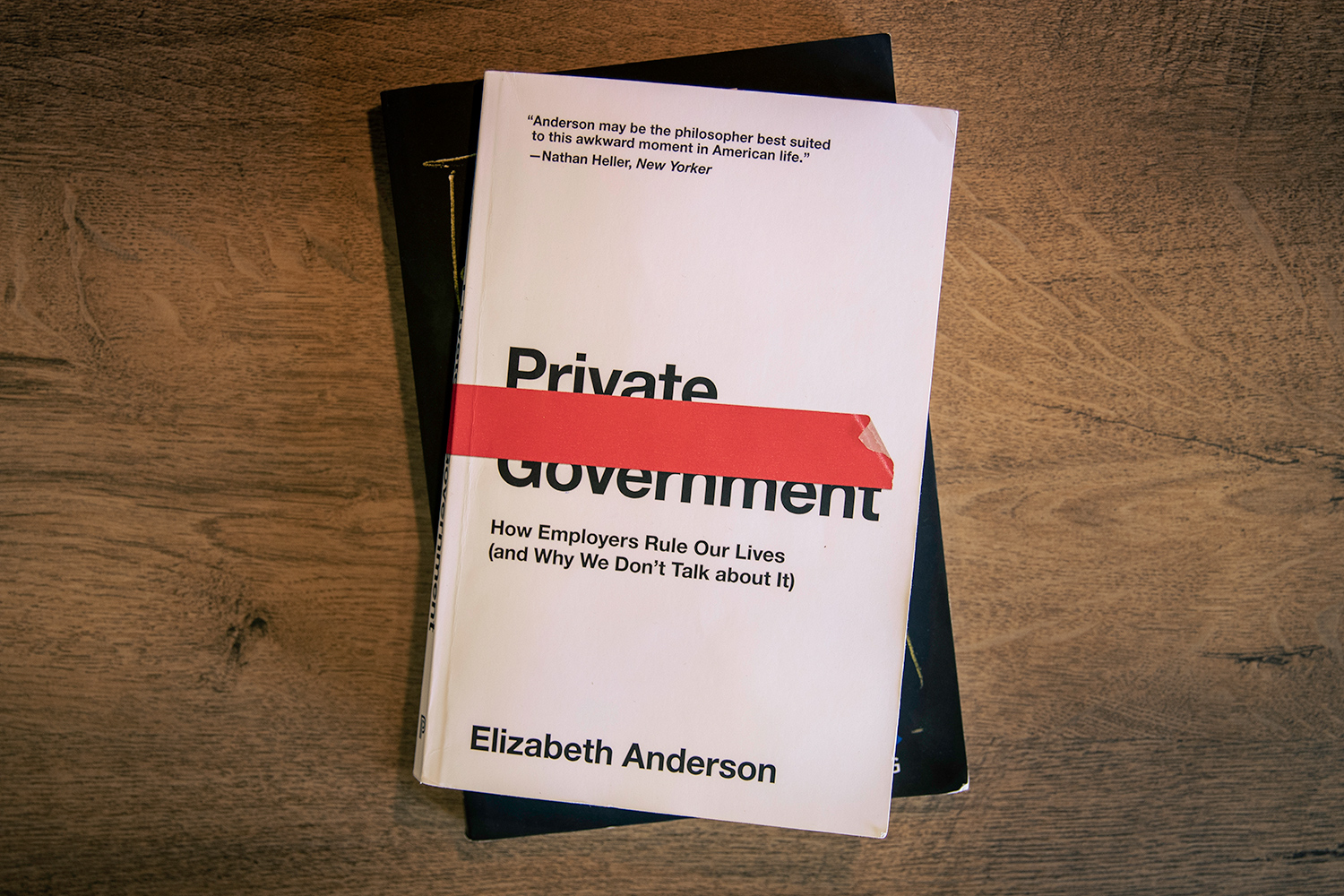A leap forward in AI ethics and safety
July 5, 2024

Elizabeth Anderson : Since the 1980s, when I was in graduate school, labor issues have been neglected in the U.S. The rise of neoliberal policies crushed organized labor in the U.S. Now only about 6% of private sector workers in the U.S. are represented by a labor union. As a result, unions have lost so much political power that even the Democratic party neglects them. U.S. politics turned to issues of race, gender, sexual orientation and identity, immigration, and other areas of cultural and identity conflict. However, the financial crisis of 2007-8 raised serious questions about the legitimacy of neoliberal capitalism. The rise of “alt-labor” since then—forms of concerted labor action outside traditional labor unions—demonstrated massive discontent with the economic system. Much of this discontent has focused on labor issues beyond just wages. They have to do with how employers subject workers to extensive surveillance, micromanagement, censorship, and political control, not just at work but often even off-duty. More and more workers are subject to arbitrary and irregular work hours, expected to be on call at any moment, disrupting any plans they might have for using their off-duty hours for family life, leisure, and education. These are issues of worker freedom.
Whenever a social movement rises, political philosophers need to address it. Private Government offers workers a way to understand their problems with the ways employers govern them, and some proposals to expand workers’ control over their lives, both at work and off-duty. The time is ripe to address these political concerns of workers, which have only accelerated since the pandemic. Putting labor issues back on the political agenda also offers some hope for finding common ground across the political divisions driven by the politics of race, gender, sexuality, and religion. Nearly every adult needs to work for a living. But workers can only effectively advance their interests if they unite across their identity differences.
“Laissez-faire liberals, touting the freedom of the free market, told workers: choose your Leviathan. That is like telling the citizens of the Communist bloc of Eastern Europe that their freedom could be secured by a right to emigrate to any country—as long as they stayed behind the Iron Curtain. Population movements would likely have put some pressure on Communist rulers to soften their rule. But why should Leviathan set the baseline against which competition took place? No liberal or libertarian would be satisfied with a competitive equilibrium set against this baseline, where the choice of state governments is concerned. Workers’ movements rejected it for nonstate governments as well.
To their objection, libertarians and laissez-faire liberals had no credible answer. Let us not fool ourselves into supposing that the competitive equilibrium of labor relations was ever established by politically neutral market forces mediated by pure freedom of contract, with nothing but the free play of individuals’ idiosyncratic preferences determining the outcome. This is a delusion as great as the one that imagines that the workplace is not authoritarian. Every competitive equilibrium is established against a background assignment of property rights and other rights established by the state. The state supplies the indispensable legal infrastructure of developed economies as a kind of public good, and is needed to do so to facilitate cooperation on the vast scales that characterize today’s rich and sophisticated economies. Thus, it is the state that establishes the default constitution of workplace governance. It is a form of authoritarian, private government, in which, under employment-at- will, workers cede all their rights to their employers, except those specifically reserved for them by law.”
—Private Government, p. 60.
E. A. : First, as I have noted, the U.S. labor movement is rising in new, creative forms. Second, even elite workers, such as doctors and engineers in high technology industries, are coming to recognize how their employers are trampling on their professional autonomy and inflicting moral injuries upon them. So they are also organizing to reform the workplace. Third, neoliberal ideology and economic policies are losing credibility across the world, even in many elite circles. Laissez-faire economics has traction today only among plutocrats and their servants.
Finally and most importantly, we are witnessing new, creative experiments in participatory democracy. In Michigan, where I live, ordinary voters—not politicians—recently took control over the drawing of electoral districts, with a mandate to make them fair to everyone. As a result, in the 2022 election, Democrats won both houses of the state legislature for the first time in 40 years. They are swiftly enacting popular legislation opposed by Republicans, including repeal of abortion restrictions enacted more than a century ago, and repeal of a union-busting law misleadingly called “right-to-work.”
E. A. : To counteract current trends of populist authoritarianism, individuals must join forces with their fellow citizens to renew democracy so that it can deliver positive results for ordinary people. Democracy is not ultimately vested in elected offices or representative institutions, but in the people themselves. Seek out opportunities to creatively extend democratic institutions, not just at the level of the state, but in the workplace as well. When ordinary workers exercise authority in their workplace, they are better prepared to make state-level democracy work for them too.
E. A. : I am continuing my exploration of labor issues in my forthcoming book, Hijacked: How Neoliberalism Turned the Work Ethic against Workers and How Workers Can Take It Back. It’s a history of the Protestant work ethic, in which I uncover its neglected resources for promoting workers’ interests, and argue for a renewal of social democracy. I am also developing a democratic ethic of how ordinary citizens should communicate their political concerns to each other across identity differences. Political discourse is toxic in the U.S. and other democracies today, driving many citizens out of the public square. We need to do much better. I am showing how we can, in my next book, Can We Talk?.
Thank you Elizabeth Anderson
Many thanks Bertrand Jouvenot